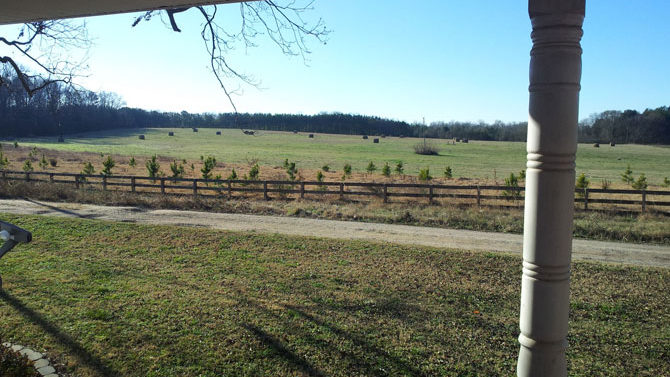Residents and officials in Clarke and Oglethorpe counties have been talking trash. The ACC Solid Waste Department has just wrapped up a series of three public meetings, called Facilities Issues Negotiations, wherein residents in the area were called upon to voice their concerns about the proposed expansion of the Athens-Clarke County landfill, which sits on the Oglethorpe County line at ACC’s eastern edge.
The county-owned and -operated landfill is running out of room. Its remaining storage capacity is lower than that of almost any other landfill in the state. “The county had two options,†says Jim Corley, ACC’s solid waste director. “We could either build a transfer station and transfer our waste to another county, or we could keep doing it here and manage our own waste.â€
We’re not exactly “doing it here,” however. In 1976, Athens-Clarke County purchased about 400 acres located off Lexington Road to be used as the municipal landfill. Forty of these acres, located in Oglethorpe County, were not permitted as a landfill site until 1992, when the two governments contracted to expand the existing landfill into the property in Oglethorpe. So, several thousand tons of ACC waste is already spilling over into a neighboring community. All of ACC’s construction and demolition waste goes to Oglethorpe County’s landfill a few miles farther down Highway 78.
The counties voted to expand the landfill again in early 2008. That summer, Oglethorpe County acquired 79 new acres of land, which was sold to Clarke County in 2009 to be used for the expansion. ACC then began the process of applying for a permit from the Environmental Protection Division of the state Department of Natural Resources to expand the site onto the newly acquired land.
A 1990 Georgia law requires no fewer than three Facilities Issues Negotiation (FIN) meetings take place as a part of the permitting process for any landfill construction or expansion. At the recent FIN discussions, residents expressed a number of concerns with the expansion, including possible contamination of their well-water supplies, decreasing property values, long-term health consequences and nuisances that could arise with the construction and operation of the enlarged landfill.
“Water is always a concern because, well, you’ve got to have water to live,†says Oglethorpe County resident Chris Fleeman. “There’s also the concern of noise and odor.â€
Fleeman, who has lived near the landfill his entire life and whose family has owned property there since 1955, also expressed concern about the possibility of fires at the landfill site because of the proximity of the new site to his home. “As of now, there’s 80 acres between the landfill and us. That’s the 80 acres that they purchased. So, at that point, there’s going to be 500 feet between it and our home.â€
Athens-Clarke County and the residents of the two counties that will be affected by the expansion have come to an agreement with the help of the FIN process. As part of the negotiations, ACC will limit access to the landfill to the current entrance on Lexington Road, pave the road that abuts the expansion site and continue to monitor the system of test wells surrounding the landfill, in addition to adding 17 new wells and monitoring some of the neighbors’ wells.
Residents near the landfill are no strangers to the FIN process. They last participated in these meetings in 1992, when the landfill first expanded into Oglethorpe County. But residents are wary of the negotiations, and with good reason.
One of the concessions to come out of the 1992 FIN meetings was that ACC agreed not to expand again, but rather to close the landfill when it reached capacity. But, less than two decades later, the county began investigating how to expand the landfill despite the agreement.
Residents were predictably unhappy with the change in plans, and many felt they had been deceived. “The people around here have lived here for quite a long time, and take people for their word,†says Fleeman. “A handshake still means something around here. The older generations just feel disheartened by the whole thing. They don’t have a lot of faith in the process.â€
Unfortunately for the residents, agreements resulting from the FIN process are non-binding. According to Georgia law, a current municipal commission cannot bind itself or a future commission to any such agreement in perpetuity, meaning the agreements made during the negotiations are not enforceable by law. As a result, there was nothing preventing the county from going back on its 1992 promise—which is exactly what ACC is doing with the current expansion.
“What was done back then probably wasn’t the wisest thing,†says Corley, the solid waste director. “It was done with good intent, but it was done with certain conditions in place… they thought there was going to be a regional landfill.†When plans for the regional landfill fell through in 1998, it became difficult for the county to keep their promise.
Fleeman was in disbelief when he first heard of the permit proposal. “It feels like the politicians at the time just said what they had to say to appease the citizens,†says Fleeman, who was 15 when the agreement was made. “Twenty years later, it’s here again and we’re doing the same thing and having the same feelings again.â€
Needless to say, the county is trying not to make the same mistake twice. Still, awareness of history is leaving the residents unsatisfied with the concessions being offered this time around. “One thing I do appreciate about the current government is that they’re not telling us any lies,†says Fleeman. “They’re just not really telling us anything.”
In addition to the non-binding nature of the agreements, the Gratuities Clause of the Georgia Constitution, which prohibits state, city and county governments from granting anything “freely or without recompense,” also limits the FIN process. As a result Athens-Clarke County cannot compensate neighboring homeowners for potential decreases in property values or any other concessions for potential harm.
Ironically, this is not the case for privately owned landfills, which must go through the FIN process, but are not tied to the Gratuities Clause and can offer to residents whatever compensation is deemed appropriate, typically documented in a binding contract. So, state law and EPD policy make it more difficult for locally administered facilities to deal with many concerns.
Fleeman and other residents are frustrated with the FIN process because of its narrow scope and non-binding nature. “The FIN process is just a mutual agreement. There’s nothing that’s enforcing it,†Fleeman explains. “So, the process should either be done away with, or have some meat on the bones to give it some kind of standing for the future.†Until then, residents and officials can only agree to a few concessions, signed and sealed with a handshake.
Like what you just read? Support Flagpole by making a donation today. Every dollar you give helps fund our ongoing mission to provide Athens with quality, independent journalism.










